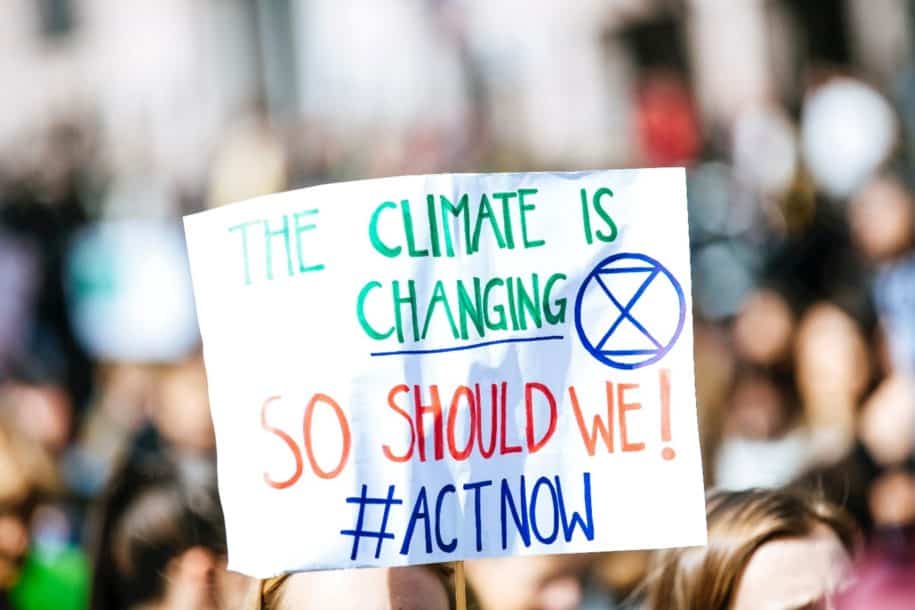Representing 197 different countries, approximately 40,000 delegates (including 120 heads of state) attended the 26th United Nations Climate Change Conference of the Parties (COP26) in Glasgow, Scotland. Two weeks into these passionate, multi-faceted climate negotiations, all countries agreed to the signing of a climate deal that is a first-of-its-kind – the 2021 Glasgow Climate Pact.
“Phase down” of coal
The current discrepancy between climate commitments and actual actions reveals a projection surpassing even double the CO2 emissions limit required to keep global warming below 1.5 degrees Celsius. According to the United Nations (UN), a six percent cut on annual global fossil fuel production is needed to avoid the worst effects of global warming. However, a recent report commissioned by the UN Environment Programme reveals that countries are set to increase their production by 2% annually. Addressing these concerning statistics, the 2021 Glasgow Climate Pact explicitly details the agreement to “phase-down the use of coal power and inefficient fossil fuel subsidies.” The effect is a welcome development and significant breakthrough, as previous climate agreements did make specific mention of fossil fuels.
The original draft of the pact supplied the term “phase-out.” The reason for the last-minute revision lies with a group led by delegates from China and India requesting refinement of this verbiage, in favor of its replacement, “phase-down.” The argument for this alteration included a warning against consequences that abrupt global policy changes could bring, with the potential threat to development in poorer nations. Even with the compromise, a vast majority of country representatives still concede that having the pact signed was better than no agreement at all, with a negotiator from New Zealand calling it the “least-worst outcome.”
Increased Financing for Climate Adaptation
Developing countries and island nations bear the brunt of climate change and are now demanding compensation for losses and damages. After the shortfall of the Organization of Economic Co-operation and Development (OECD) to provide $100 billion a year in support to developing countries by 2020, the group has moved its end-goal date to 2023 and promised to increase financial pledges every year thereafter. By highlighting the need to fast-track a clean energy transition, COP26, therefore, served as an additional reminder for wealthy countries to strengthen their commitments to helping developing nations adapt to climate change.
Commitment to 1.5 degrees Celsius
Released in August of 2021, the first part of the 6th Assessment Report of the Intergovernmental Panel on Climate Change (IPCC) sounded the alarm on the devastating impacts that are the collateral damage of a global warming temperature higher than 1.5 degrees Celsius. Following the landmark 2015 Paris Agreement, countries were once again asked to renew their commitments to reduce their greenhouse gas emissions and slow down global warming. Notwithstanding the toned-down wording regarding fossil fuel use, delegates emphasized that the push to limit the use of coal, the burning of which contributes to at least 40% of global carbon dioxide emissions, is already a victory in itself. John Kerry, in his capacity as the United States Presidential Special Envoy for Climate, claimed the decisions reached in Glasgow are not likely to end the climate crisis, but the “starting pistol” has been shot. In his closing remarks, COP26 President Alok Sharma stated, “We can now say with credibility that we have kept 1.5 degrees alive.” At the reconvening of negotiations at COP27, delegates will be expected to report how commitments have been translated into rapid action and pledge additional cutbacks to CO2 emissions.
Climate change manifestations, which include more frequent and extreme heatwaves, wildfires, droughts, winter storms, and cold snaps, have become yearly news headlines in most parts of the world. As such, everyone has a stake in protecting the environment. Though the strain of rapid climate change may be felt globally, developing nations are at a significantly greater disadvantage due to the lesser capacity for adaptation. Richer countries (that contribute more to global warming) are therefore the recipients of the more urgent reminders to put greater efforts into assisting these nations. The 2021 Glasgow Climate Pact was monumental in recognizing the contribution of fossil fuels to a worsening climate. As the countries represented at COP26 were all in agreement that employing measures to counter the threat of global warming is a priority, the narrow window to keep the rise in global temperature below 1.5 degrees Celsius remains open.
Author Bio
The SafetyStratus Research Advisory Group (RAG) brings together thought leaders from the global environmental, health, and safety community to promote best practices and provide key insights in the profession and the industries they serve. The Research Advisory Group also advocates, where practical, the intersection of and advances with the use of technology, such as the SafetyStratus enterprise EHS software platform. Group membership consists of representatives from across varied disciplines and market sectors as well as select members of the SafetyStratus team.
The primary objectives of the SafetyStratus RAG partnership are to:
- Build a strategic partnership between EHS practitioners and the SafetyStratus team.
- Provide engaging and practical content to the global EHS community.
- Provide discipline and market feedback specific to SafetyStratus products and services.
While the objectives of the RAG are varied, the primary public-facing outcome will be available through engaging and practical content found on the SafetyStratus resource pages. Various articles, papers, and other valuable resources will be produced and shared as part of an ongoing effort to cultivate a robust community. Ultimately, the SafetyStratus RAG will expand to have a broader reach and provide opportunities for more inclusion by all interested EHS professionals in a collaborative community environment.
References
COP26 closes with ‘compromise’ deal on climate, but it’s not enough, says UN chief. UN News. (2021). Retrieved 15 November 2021, from https://news.un.org/en/story/2021/11/1105792.
Cursino, M., & Faulkner, D. (2021). COP26: China and India must explain themselves, says Sharma. BBC News. Retrieved 15 November 2021, from https://www.bbc.com/news/uk-59280241.
Intergovernmental Panel on Climate Change. (2021). Sixth Assessment Report: Working Group I – The Physical Science Basis. Intergovernmental Panel on Climate Change. Retrieved from https://www.ipcc.ch/report/ar6/wg1/downloads/report/IPCC_AR6_WGI_Headline_Statements.pdf
Jakob, M., Steckel, J., Jotzo, F., Sovacool, B., Cornelsen, L., & Chandra, R. et al. (2020). The future of coal in a carbon-constrained climate. Nature Climate Change, 10(8), 704-707. https://doi.org/10.1038/s41558-020-0866-1
‘Paris built the arena, Glasgow starts the race’. BBC News. (2021). Retrieved 15 November 2021, from https://www.bbc.com/news/av/world-59278509.
The Production Gap. (2021). The Production Gap: 2021 Report. The Production Gap. Retrieved from https://productiongap.org/wp-content/uploads/2021/10/PGR2021_ExecSummary_web_rev.pdf United Nations Framework Convention on Climate Change. (2021). Glasgow Climate Pact. Glasgow: United Nations Framework Convention on Climate Change.



